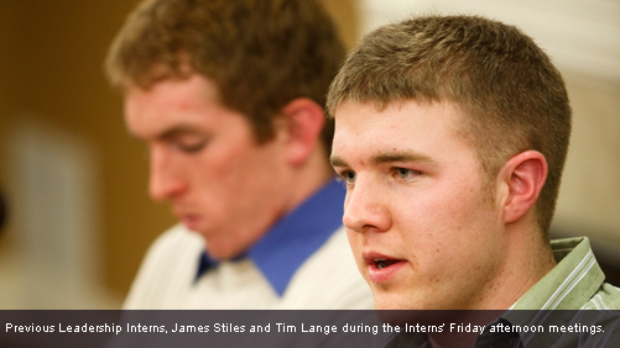On Feb. 24-26, the John A. Ryan Institute for Catholic Social Thought, in collaboration with the Pontifical Council for Justice and Peace and the Ecophilos Foundation (Switzerland), co-sponsored a seminar titled “The Logic of Gift and the Meaning of Business: An Experiential, Scholarly and Pedagogical Examination of the Firm in Light ofCaritas in veritate.”
With so many Catholics working in business and with many Catholic universities sponsoring business schools, it is of significant importance that the Catholic social tradition provides deeper reflections and insights which impact the personal vocation and institutional mission of Catholics and Catholic educational institutions. It is also important for the Church to speak meaningfully to all people of good will within the business community, especially during this current economic and financial crisis.
The seminar brought together 40 participants who developed and deepened a community of scholars and practitioners. They consisted of an interdisciplinary group of scholars from fields of theology, economics, philosophy, business and law, whose commitment in academic life is not simply to a method of a discipline but to the exploration of the Catholic social tradition. Participants also included leaders and practitioners in business banking, entrepreneurship, law, education and politics, whose principal commitment is not only to a profession but to a deeper integration of faith and work.
The format of the sessions consisted of a short summary of the papers followed by a response. The participants then broke into small groups for a more in-depth examination of the issues at hand, and then the large group reconvened to further synthesize the major points that were discussed. This format resulted in a lively discussion that generated many creative and innovative ideas. The closing session was a recap of the ideas presented throughout the seminar and a discussion about how to move forward with concrete steps that would be practical, accessible and transforming for business educators and practitioners.
One proposal at the seminar was to have the Pontifical Council for Justice and Peace develop a set of Catholic social principles for business professionals and business educators. Dr. Robert Kennedy and Dr. Michael Naughton, from the Center for Catholic Studies, and Dr. André Habisch, from Eichstätt University, made the proposal. They explained that the Pontifical Council could produce a short “primer” on Catholic social principles, which can more effectively evangelize and humanize the business community.
The Church has unique resources to get the job done. Three in particular stand out:• Arguably the most extensive tradition of social thought, teaching and practice of any religious body in the world; An extensive network of groups and associations of Catholic business professionals, such as the Brussels-based “International Christian Union of Business Executives,” founded by Catholics in the early 20th century, though now ecumenical; More than 1,000 Catholic colleges and universities around the world, most of which have business schools – though many, unfortunately, don’t actually draw upon the Catholic social tradition in any systematic way.
John L. Allen commented on the seminar and the Catholic social principle proposal in his column, “Vatican to Craft Catholic ‘Sullivan’ Principles,” in the National Catholic Reporter on March
1. Several participants in the seminar were from St. Thomas.
Dr. Michael Naughton, director of the John A. Ryan Institute for Catholic Social Thought of the Center for Catholic Studies, co-organized the conference with Monsignor Anthony Frontiero from the Pontifical Council for Justice and Peace.
• Dr. Robert Kennedy from the Department of Catholic Studies and co-director of the Terrence Murphy Institute for Catholic Thought, Law, and Public Policy, presented a paper which was co-written with Naughton and André Habisch proposing that the Pontifical Council for Justice and Peace issue a document on Catholic social principles for business.
• Dr. Ken Goodpaster from the Opus College of Business and Koch Chair of Business Ethics presented a paper linking “the logic of gift or contribution” to having “goods that are truly good and services that truly serve.”
• Dean Maines, president of the SAIP Institute, served as a respondent at one of the sessions.
• Mary Kay O’Rourke, program coordinator from the John A. Ryan Institute, organized many of the logistics of the conference.
• Jessica Zittlow, a student in the Catholic Studies master’s program, who is serving as an intern at the Pontifical Council for Justice and Peace, assisted in the logistics of theseminar.
All of the papers, including speeches from Peter Cardinal Turkson and Bishop Mario Toso, president and secretary of the Pontifical Council for Justice and Peace, and a homily from the opening Mass of the seminar can be accessed on the Center for Catholic Studies’ “Logic of Gift and the Meaning of Business” website at www.stthomas.edu/cathstudies/cst/conferences/.
Read more from Perspectives






